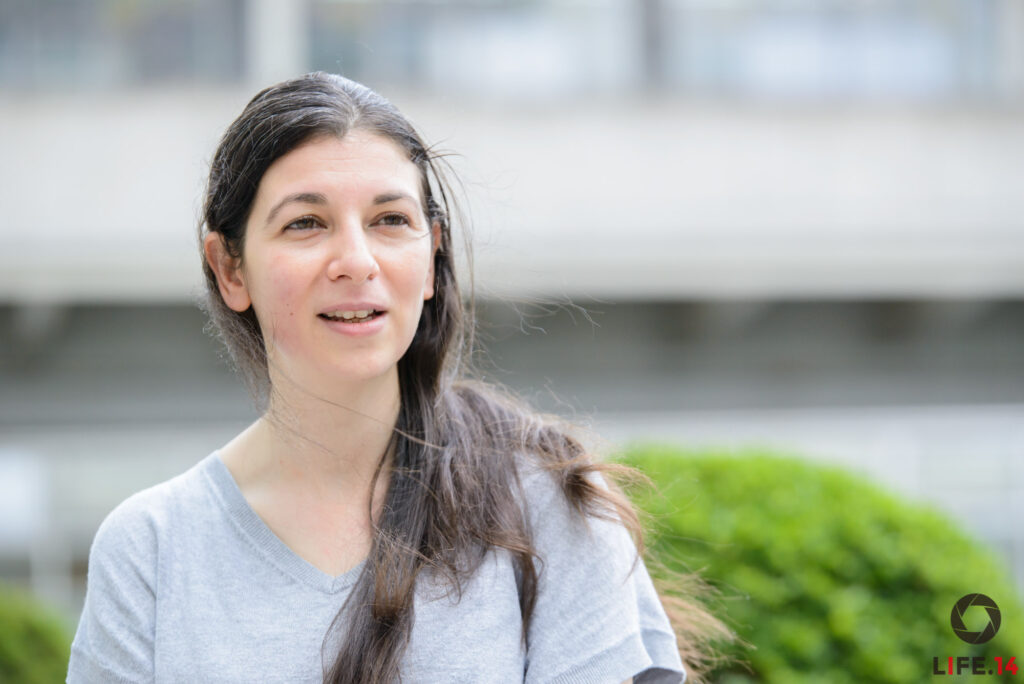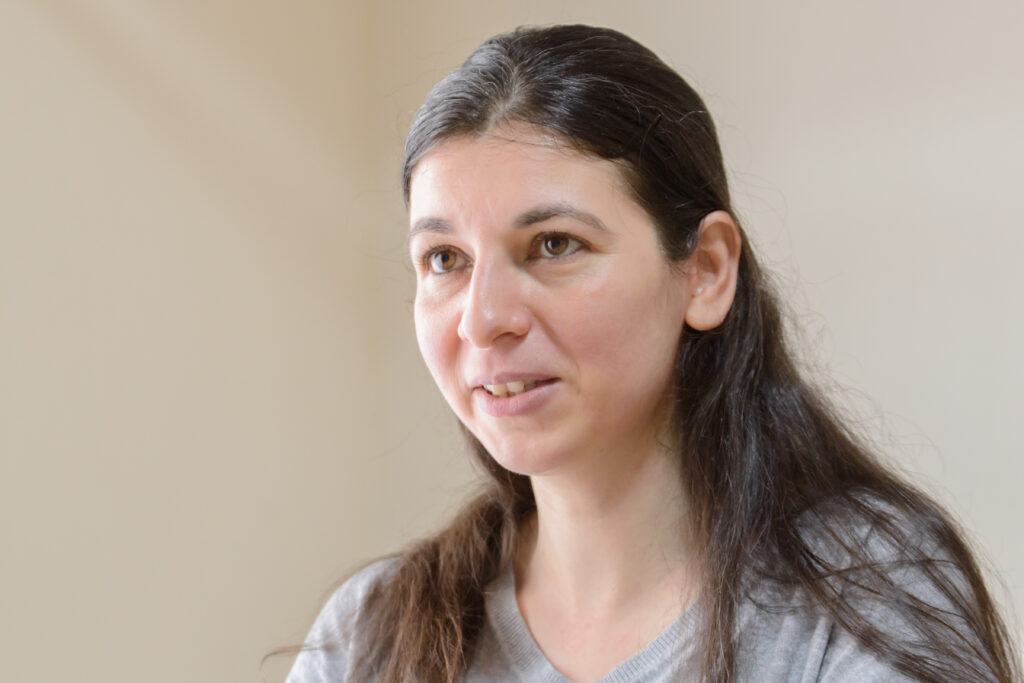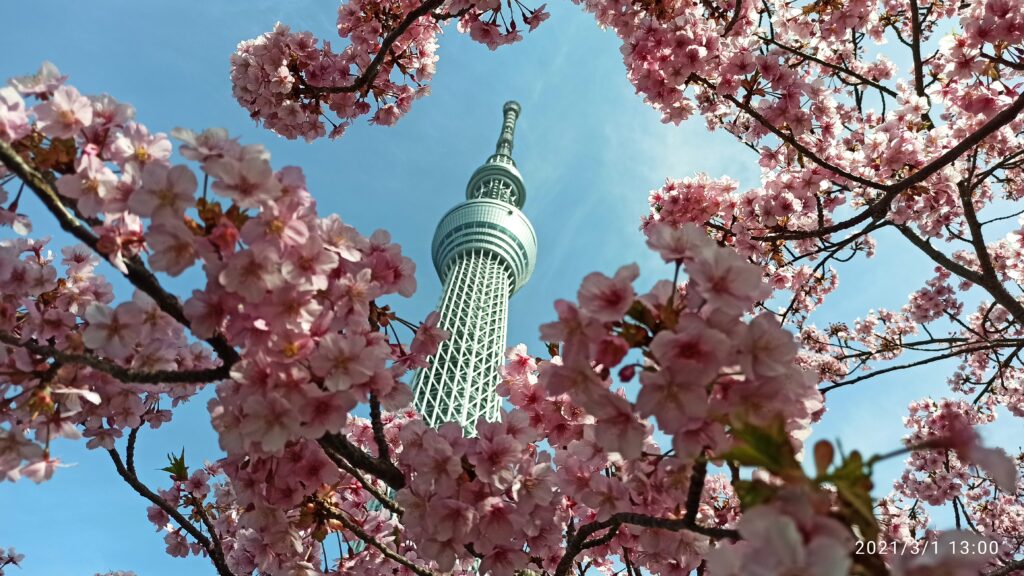
Suzan, from Syria, came to Japan in 2018 as a second-term student of the Refugee Student Admission Programme, when her house was burnt down and the university she attended was bombed during the Syrian Civil War that broke out immediately after the Great East Japan Earthquake in March 2011. She fled to neighboring Turkey and jumped from job to job to support her family in place of her father, who died in the civil war. However, she did not let go of her strong desire to continue her studies.
Studying in Japan had long been a dream of hers. I was always looking for that opportunity to get it. He had the option to study in another country, but he never thought of choosing that option. In Turkey, where she was a refugee, a friend told her about a programme to study in Japan and she immediately applied. After arriving in Japan, she first enrolled in a Japanese language school for two years and is currently studying peace studies at a postgraduate school in Tokyo.
| Her favourite saying is “If you give up, the game is over”.
She has loved Japanese anime and manga since she was a teenager. She also has a deep knowledge of literary works by Soseki Natsume, Osamu Dazai and others. Her favourite phrase is from the manga Slam Dunk: “If you give up, the game is over”. Life in the city is not easy, but his vision for the future is unwavering.
‘I fled for my life to learn. In the future, I want to help each refugee fulfil their dreams and live the life they want. In general, it is difficult for women to even go out alone in Syria. Depending on family norms, the area they live in, etc., women do not have the same freedoms available to them. But I want to tell the girls. I want to tell them that it’s okay to follow their dreams. I want to learn more so I can have the power to share my thoughts with as many people as possible.”
| Not sinking into sadness, looking to the next generation
Although Suzan is not one to give in to weakness, she says there were days when she cried alone in her small flat. She had a particularly hard time finding part-time work. She was turned down for 50 interviews at convenience stores, sushi restaurants, second-hand bookshops and apparel shops. When she told them she was from Syria, they said, “I’m sorry. They also told me that my Japanese was not good enough or that I was too good. Her Syrian nationality was also a hurdle in her search for a home.
Nevertheless, she says. ‘I don’t have time to be miserable. It’s okay to be out of shape. It’s okay to feel lonely and sad. But you have to remember that one day things will change. Even if you feel weak, in the end you will do your best to change the world. I want to be involved in conflict resolution to make the world a little better for the younger generation. That is what I aim to do. I don’t want the terrible things that happened in Syria to happen again in another country.”

| The Syrian civil war that changed everything one day
She rarely talks about her experiences in her home country of Syria in Japan. It was in 2013 that fighting intensified in the area where Suzan lived. Various forces were clashing with each other. The university she attended was bombed on the first day of mid-term exams. Many of her friends were injured and lost their lives. She had intended to go to university too, but remembered her errands and did not visit that day. Shortly afterwards, their home was bombed and Suzan and her family were forced to flee the town.
‘The road to evacuation was terrifying. The town was divided between several forces, fighting across the street. The only way out of the town was through them. On the way, the experience of going through the street known as the ‘Road of Death’ was the most terrifying of my life. The journey, which normally takes 20 minutes, took 15 hours. We passed through many checkpoints, under the watchful eye of snipers everywhere.”

| Trip to Nagasaki, where I felt ‘peace’.
Suzan likes to visit historic places around Japan. Among them, her memories of a trip to Nagasaki are particularly special. In Nagasaki, I felt ‘peace’ and ‘survival’. I have experienced tragic events and have managed to move on, but I have not forgotten the pain I felt in my heart. The night may be dark, but the sun rises with the birdsong. Even if you can’t see in the darkness, there is always hope. This is the town where I felt that.”
| Differences are fine. The important thing is to respect each other.
Japanese society is not very hospitable to refugees, but Suzan dared to study in this society. She chose to study in Japan because it is a different experience from other countries, where she can learn different perspectives and encounter different ideas. She has a message for Japanese society. ‘It’s okay to have differences. Everyone has their own thoughts and wants to survive in this world. So the important thing is to respect each other.”
The civil war deprived Susan of the people and time she cherished. But it could not take away hope from her, as she knows how precious it is to pursue her dreams and survive. Suzan’s words, spoken with an unwavering faith and a straightforward view of the future, are simple, but they touch the hearts of those who listen. How will she deliver her words to the next generation in the future? There are surely horizons beyond our imagination that will open up.

Interview and text by Shiho Tanaka
